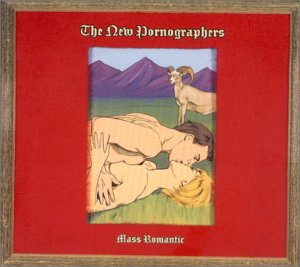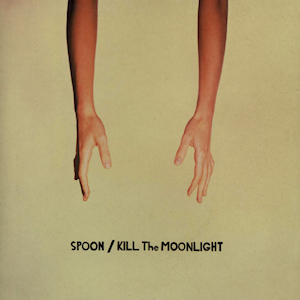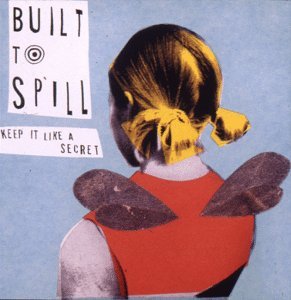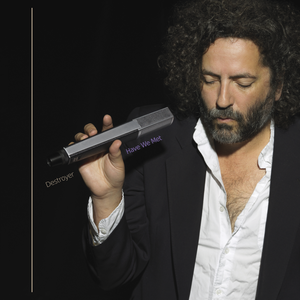
The New Pornographers are a Canadian indie rock band, formed in 1997 in Vancouver. Presented as a musical collective and supergroup of singer-songwriters and musicians from multiple projects, the band has released nine studio albums to date. The band have received critical acclaim for their use of multiple vocalists and songwriters, as well as for the elements of power pop incorporated into their music. Pitchfork has described the band's sound as "peppy, gleeful, headstrong guitar pop", while Stereogum has retrospectively praised the band's debut album Mass Romantic as "one of the greatest and most immediate power pop albums ever rendered".

Mass Romantic is the debut studio album by Canadian indie rock supergroup the New Pornographers. Produced by David Carswell and band bassist John Collins, it was released on Mint Records on November 28, 2000. The album was three years in the making, with musicians A.C. Newman and Dan Bejar writing songs as early as 1998. With encouragement from peers, they recorded an album with other Canadian musicians from groups including the Evaporators, Zumpano, and Destroyer.

69 Love Songs is the sixth studio album by American indie pop band the Magnetic Fields, released on September 14, 1999, by Merge Records. As its title indicates, 69 Love Songs is a three-volume concept album composed of 69 love songs, all written by Magnetic Fields frontman Stephin Merritt.

Kill the Moonlight is the fourth album by American rock band Spoon released on August 20, 2002, through Merge Records. The album features a stripped-down, minimal sound that incorporates various different instruments such as tambourines and pianos along with an idiosyncratic production style. The album has gone on to receive critical acclaim with its lead single "The Way We Get By" being used in various television shows, and is regarded as Spoon's magnum opus.

Keep It Like a Secret is the fourth studio album released by American indie rock band Built to Spill, and their second for Warner Bros. Records.

Twin Cinema is the third studio album by Canadian indie rock group The New Pornographers. It was released on August 23, 2005. The album was shortlisted for the 2006 Polaris Music Prize. As of 2010 it has sold 138,000 copies in US and 20,000 copies in Canada.

Love Is Hell is the fifth studio album by American musician Ryan Adams, released on May 4, 2004, by Lost Highway Records. The album was originally released as two EPs, Love Is Hell pt. 1 and Love Is Hell pt. 2, at the insistence of Lost Highway, who deemed that the album was not commercially viable. A full-length version of the album was released when the EPs proved to be more of a commercial success than anticipated. Love Is Hell features guest contributions from Marianne Faithfull and Greg Leisz, as well as Fabrizio Moretti and Leona Naess on certain bonus tracks.

Your Blues is the sixth studio album by Destroyer, released on March 8, 2004 by Merge Records, Trifekta Records, Scratch Records, Talitres Records, and Acuarela Discos.

Destroyer's Rubies is the seventh studio album by Canadian indie rock band Destroyer, released on February 21, 2006 on Merge Records, Scratch Records, Acuarela Discos, Architecture, and Rough Trade Records.

Attack & Release is the fifth studio album by American rock duo The Black Keys. It was produced by Danger Mouse and was released on April 1, 2008. The sessions saw the band transitioning away from their "homemade" ethos to record-making; not only was it the first time that the band completed an album in a professional studio, but it was also the first time they hired an outside producer to work on a record.

Alphabutt is an album of children's music by Kimya Dawson, recorded in February 2007, recorded with Hidden Vagenda producer Jason Carmer. The Alphabutt sessions were completed on February 21, 2008, and the full album was released on K Records in September 2008.

Broken Dreams Club is an EP and the second release by American indie rock band Girls, released on November 22, 2010 on True Panther Sounds.

Kaputt is the ninth album by Canadian indie rock band Destroyer. It was released on January 25, 2011 by Merge Records and Dead Oceans Records. The album was leaked towards the end of 2010. The vinyl edition of the album features bonus material on side three written largely by frequent Destroyer collaborator Ted Bois. This material is also included in the European CD version of the album credited as 'The Laziest River'.

Destroyer is a Canadian indie rock band from Vancouver, formed in 1995. The band is fronted by founding member Dan Bejar, with a collective of regular band members and collaborators joining him in the studio and during live performances. Alongside Bejar, Destroyer currently includes longtime producers John Collins (bass) and David Carswell (guitar), Nicolas Bragg, Ted Bois (keyboards), JP Carter (trumpet) and Joshua Wells (drums).

Five Spanish Songs is a Spanish language EP by Canadian indie rock band Destroyer. It was released on November 26, 2013, via Merge Records and on December 2, 2013, via Dead Oceans in Europe.

Poison Season is the tenth studio album by Canadian indie rock band Destroyer, released on August 28, 2015 by Merge Records and Dead Oceans Records.

Innocence Reaches is the fourteenth studio album by American indie rock band of Montreal. It was released on August 12, 2016.

Ken is the eleventh studio album by Canadian indie rock band Destroyer, released on October 20, 2017 by Merge Records. Band Leader Dan Bejar began writing ken while on tour in Washington State. Many of the songs and sounds of the album were aesthetic callbacks to Bejar's teenage years in the mid 1980's, with loose ties to Thatcher era politics.

Have We Met is the twelfth studio album by Canadian indie rock band Destroyer, released on January 31, 2020, by Merge Records and Dead Oceans.

Labyrinthitis is the thirteenth studio album by Canadian indie rock band Destroyer, released on March 25, 2022, by Merge Records and Bella Union.




















